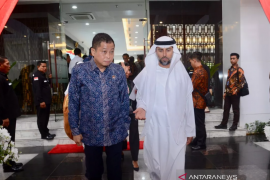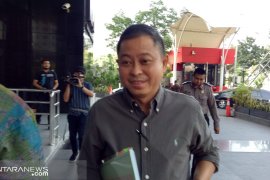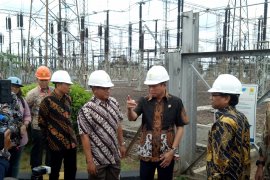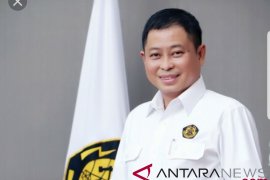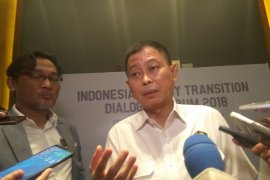"Friends should learn a lot here. Why? Here, the proportion of energy lost, known as shrinkage, reaches some six percent, while ours is at 9.2 percent," he told ANTARA after attending the 6th Indonesia-China Energy (ICEF) Forum in Beijing on Tuesday night (July 9).
PLN incurs losses owing to the energy lost during the process of transmission of electrical energy from sub-stations to customers, or so-called shrinkage.
With shrinkage of merely six percent, China is able to offer electricity to consumers at much cheaper prices than those in Indonesia, with shrinkage of 9.2 percent.
"This is what we encourage. Why cannot we emulate them? 'Lah wong' the technology used is the same," the former transportation minister noted.
Jonan believes that a three-percent reduction in network shrinkage in Indonesia, from nine to six percent, will help to lower electricity tariffs in Indonesia or perhaps be similar to that in China where prices are affordable and the supply is smooth, so blackouts are rare, disparate to Indonesia.
The minister pointed out that China optimally utilizes all its existing energy potential, including wind, geothermal, nuclear, gas, and coal, to produce electricity. In spite of having abundant coal production and high-quality calorie content, China continues to import it from Indonesia.
"China's coal production reaches three billion tons annually, but the yearly requirement is 3.5 tons, so 500 thousand tons is from us. We own 600 thousand tons of production," he noted.
However, in terms of quality, coal products in Indonesia are less as compared to China since the land structure in mainland China is older.
At the ICEF, Jonan also highlighted the possibility of studying more modern renewable energy technologies in China.
"Several of our 'grid' systems are called 'smart grids,' so if we start large 'renewable' plants that use water, geothermal, and wind sources, we are 'confused,' as the transmission control system for our distribution is not ready," the alumnus of the Faculty of Economics of Airlangga University (Unair) Surabaya explained.
ICEF is an Indonesia-China bilateral forum held every two years. The 5th ICEF was held in Indonesia in 2017. At this year's ICEF in Beijing, Indonesia had sent at least 50 delegates from the ESDM Ministry, PT PLN, PT PGN, PT Pertamina, and others, to meet with partners from China on July 8-10, 2019.
After attending the ICEF, the Indonesian delegation, led by Jonan, met with several Indonesian citizens at the Wisma Duta Indonesian Embassy in Beijing to provide insights into national energy.
During a meeting facilitated by Indonesian Ambassador to China Djauhari Oratmangun, the ESDM Ministry played several videos on the availability of energy across the archipelago, interspersed with a question and answer session with Jonan.
"I have met the Chinese ambassador in Indonesia. I encourage graduates from here to take part in Indonesia, as there were many from the West and Japan," Jonan noted.
Translator: M. Irfan Ilmie/Eliswan Azly
Editor: Rahmad Nasution
Copyright © ANTARA 2019

